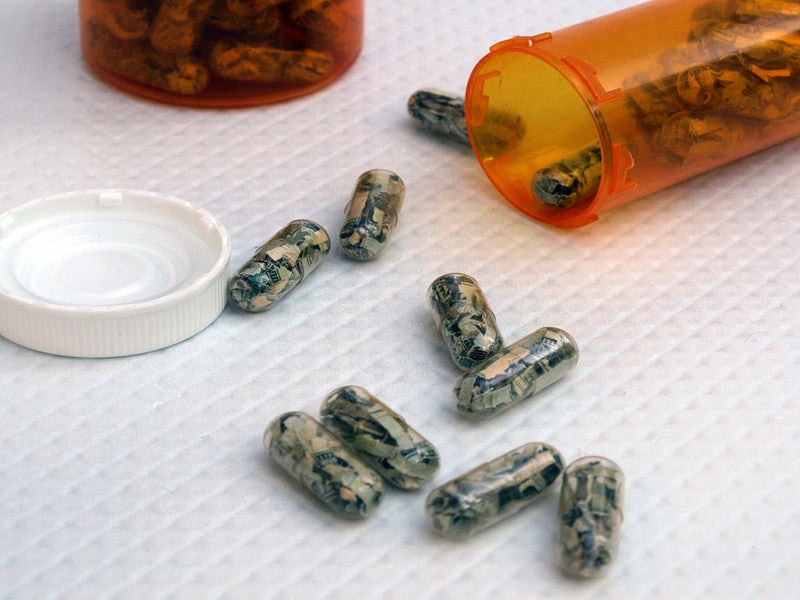
A US Senate committee has written to seven major pharmaceutical companies, inviting them to testify at a hearing about increases to drug prices in the country. The hearing is set for 26 February this year.
The letters were sent by Senate Finance Committee Chairman Chuck Grassley and Ranking Member Ron Wyden to AstraZeneca, Pfizer, Sanofi, Johnson & Johnson, Bristol-Myers Squibb, AbbVie and Merck.

Discover B2B Marketing That Performs
Combine business intelligence and editorial excellence to reach engaged professionals across 36 leading media platforms.
These latest invites to testify follow the first Senate Finance Committee’s hearing held last month.
Grassley noted that majority of the companies declined the first invitation, saying that they would discuss their ideas in private. Some of the companies have been re-invited.
Grassley and Wyden added: “This is an opportunity for companies that produce life-saving treatments to explain how they price these treatments and whether the status quo is acceptable.
“Patients and taxpayers deserve to hear from leaders in the industry about what’s behind this unsustainable trend and what can be done to lower costs.”

US Tariffs are shifting - will you react or anticipate?
Don’t let policy changes catch you off guard. Stay proactive with real-time data and expert analysis.
By GlobalDataIn a separate development, Senator Bernie Sanders sent a letter to Catalyst Pharmaceuticals seeking explanation on why the Firdapse drug, which was once free, is now priced at $375,000 per year.
Firdapse is indicated for the treatment of Lambert-Eaton myasthenic syndrome (LEMS), a rare neuromuscular disease.
For nearly 20 years, Jacobus Pharmaceutical provided Firdapse for free under a Food and Drug Administration (FDA) compassionate use programme.
However, Catalyst Pharmaceuticals recently licensed exclusive rights to market the drug for seven years under the FDA’s orphan drug designation. The company decided to set the list price at $375,000 per year.
Sanders asked the company to justify its decision and say how many patients would suffer or die because of the price.
In the letter to Catalyst, Sanders wrote: “By setting such a high price and forcing production and distribution of the older, inexpensive version to cease, you are threatening access that patients had to a cheap version of this product, and handing a completely unwarranted bill to American taxpayers.”
Amid the US government’s growing probe into prescription drug prices, the House of Representatives and the Senate are both focusing on the pricing practices of pharmaceutical companies.
Last month, Energy and Commerce Committee Chairman Frank Pallone and Oversight and Investigations Subcommittee Chair Diana DeGette sent letters to Sanofi, Eli Lilly and Novo Nordisk, requesting information on the increased costs of insulin in recent years.
The move came on the heels of an investigation launched by the US Committee on Oversight and Reform chairman Elijah Cummings into the drug pricing practices of multiple pharmaceutical companies.
Fortifying President Donald Trump Administration’s stance on lowering the prices of prescription drugs, the US Department of Health & Human Services (HHS) has recently proposed a new rule to eliminate drug rebates in the industry and push discounts directly to patients.




